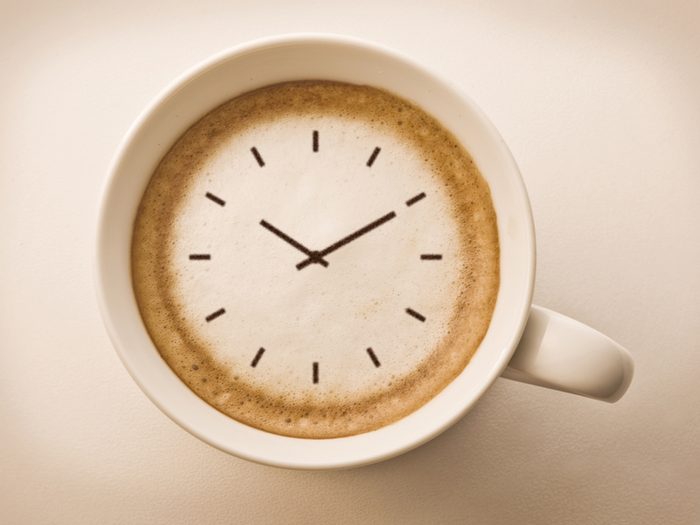
You eat breakfast closer to brunch time
Mornings in your house are bananas. We get it. Between getting the kids to school on time and yourself to work on time – and the 3,000 things required to make those two feats happen – you’re lucky if you can sneak in a sip of OJ before your first meeting. But when you’re sleeping, you’re not eating; and after all those hours with no nutrients, your metabolism – the process by which your body converts food and drinks into energy – needs a little jump-start.
To get your calorie-burning engine going, have breakfast within a hour of waking up – or even better, within 15 minutes, says Joanne Rinker, MS, RD, senior director for community health improvement at Public Health Improvement Partners.
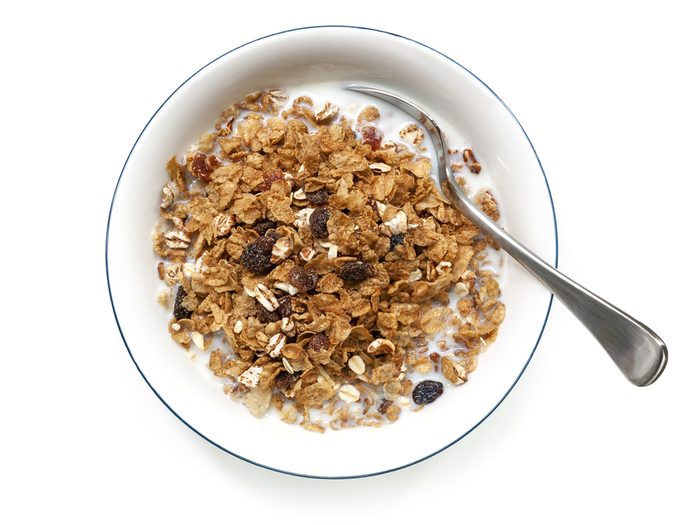
You have cereal instead of an omelette
It takes your body more time to digest protein, so eggs will keep you feeling fuller longer than if you pour yourself a bowl of carbs in the morning.
Opting for the omelette (or Greek yogurt parfait or overnight oats) may also give your metabolism a little boost.
To digest, absorb, transport, and store the food you eat, your body uses calories, and protein needs more energy to metabolize than fat or carbs, says Tammy Lakatos Shames RD, certified fitness trainer and co-author of Fire Up Your Metabolism. Plus, researchers at Purdue University found that diets higher in protein may help preserve lean body mass, which is most directly related to having a fast metabolism. Your best bet: Have a serving of protein with every meal.
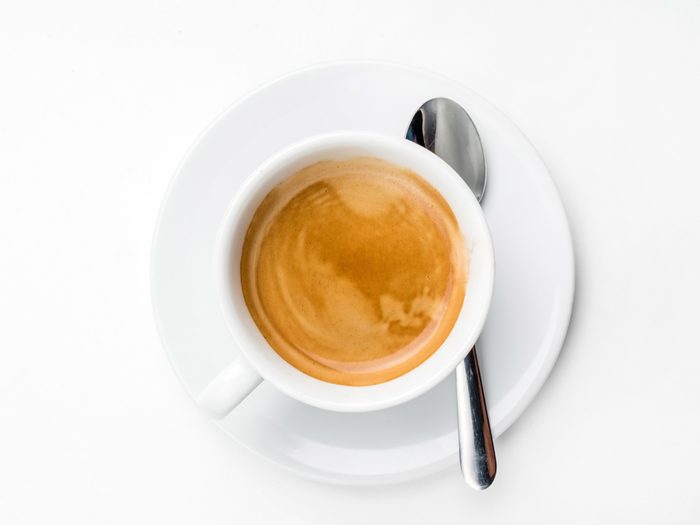
You stopped drinking coffee
True that java had a bad rep for a while, but more and more research shows that good can come out of consuming moderate amounts of coffee. It may reduce your risk of cardiovascular disease, certain neurological disorders, and even type 2 diabetes. And drinking caffeinated coffee can cause a temporary—but significant—increase in metabolism, says Kristen Gradney, RDN, director of nutrition and metabolic services at Our Lady of the Lake Regional Medical Center in Baton Rouge, Louisiana.
The caffeine gets absorbed into the bloodstream very quickly, speeding up heart rate and providing that metabolic boost. So if you want a cuppa in the morning, and even in the afternoon, enjoy: Three to five cups a day can be part of a healthy diet, say government guidelines. The catch: Keep your coffee as simple as your taste buds can take. Too many added calories from sugary syrups and fatty cream can outweigh the health benefits.

And you don’t drink enough water
Every cellular process in your body relies on water, so not hydrating properly can decrease metabolism, says Gradney. And when you’re dehydrated, you have less energy to walk, bike, or do what you need to do to burn calories, adds Shames.
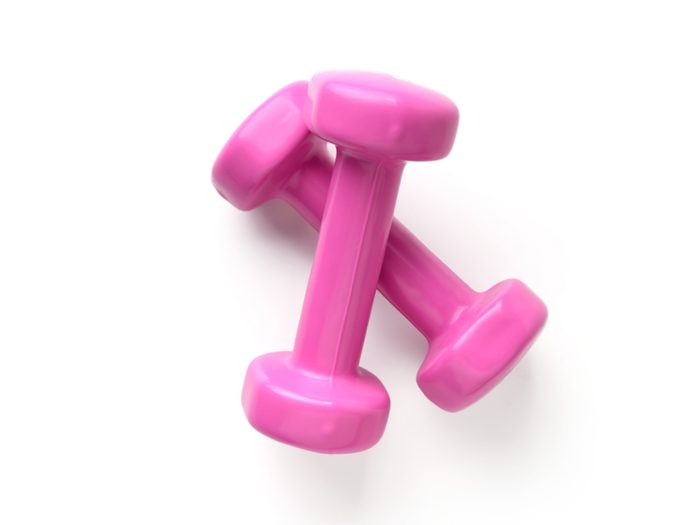
You don’t curl a dumbbell
And you have no interest in lifting, pressing, or pumping any other form of iron. Fine. But if you won’t touch a resistance band either, or do a pushup or squat, you’re pretty much pumping the brakes on your metabolism.
Here’s why: Muscle tissue is the source of your resting metabolic rate, says Jeffrey I. Mechanick, MD, clinical professor of medicine and director of metabolic support in the Division of Endocrinology, Diabetes, and Bone Disease at the Icahn School of Medicine at Mount Sinai, in New York City; that’s the number of calories your body uses to keep your heart beating, lungs pumping, and all the other necessary functions that keep our body healthy. So it stands to reason: the more muscle you have, the higher your metabolic rate and the more calories you burn.
As we age, we lose muscle and gain fat. To counteract those sad-but-true effects, include strength training in your regimen. Research published in the European Journal of Clinical Nutrition found adults who did resistance exercises three times a week significantly increased resting metabolic rate by an average of 5 per cent over the course of nine months.
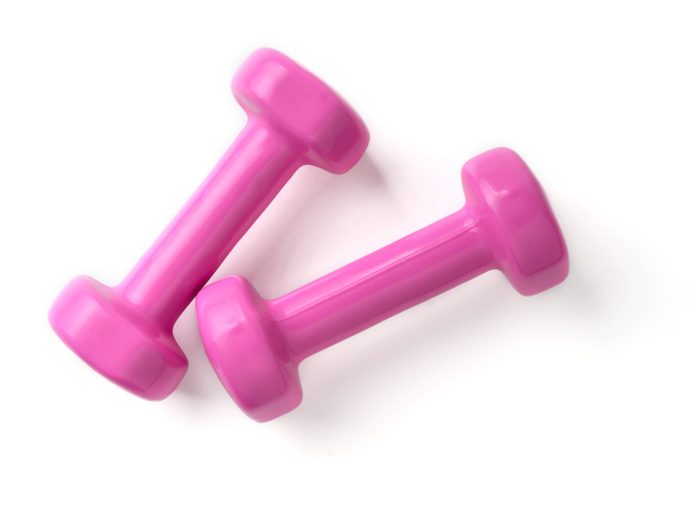
Or you curl your dumbbell too fast
You get an A for strength training effort, but take it slow when you lower the weight for maximum metabolism-boosting benefits.
Eccentric (or lowering) movements cause muscle tissue to break down more so than the act of lifting; and that’s good because your body will need to burn more calories in order to repair the damage; hence the metabolism boost! Researchers at Wayne State University found focusing on slowing down the eccentric movement pumps up your metabolism for as long as 72 hours after the session.
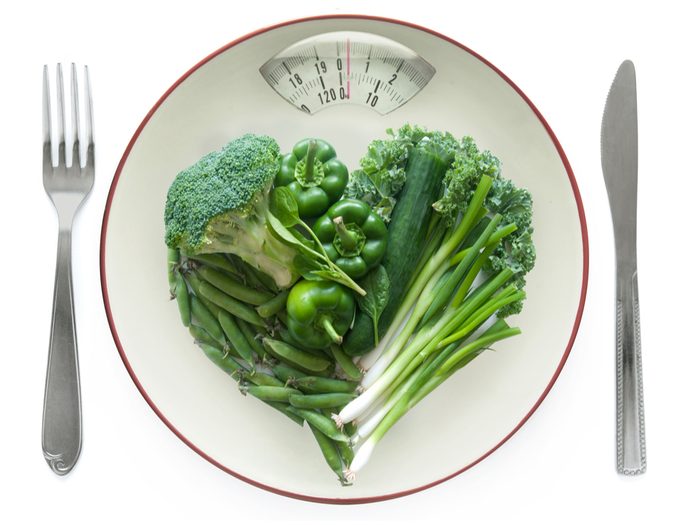
You’re crash dieting
Cut calories like crazy in an effort to shed pounds fast, and your body will hold on to them even tighter. It’s not being spiteful, it just thinks you’re starving, so it compensates by slowing down the rate at which you burn calories to conserve fuel. “Your body will start to do more with less calories, ultimately cutting down the amount of calories it uses,” says Gradney. Eating small, well-balanced meals throughout the day – every three to four hours – can keep you satisfied and your metabolism humming. These are clear signs you’re on a bad diet.

You sit too much
Before you think this one doesn’t apply to you because you work out, keep reading: More than half of our waking hours are spent sitting – at your desk at work, in the car while driving, on the couch watching TV.
All that sedentary behaviour was linked to significantly higher odds of heart disease, diabetes, and other serious health risks – even if you exercise regularly, according to an analysis of 47 studies published in the Annals of Internal Medicine.
When we’re sitting, our metabolism is not as functional, say researchers. But leisurely movements—like walking to your colleague’s office instead of calling—requires muscle activity that seems to trigger processes related to the breakdown of fats and sugars within the body. Even simply standing burns more calories than sitting, so every half hour, take to few minutes to at least get up.

You only watch medieval dramas
When you’re in Games of Thrones withdrawal, watch an old Seinfeld or Saturday Night Live. Search for funny baby videos on YouTube, or read some of our favorite jokes. Scientists have found that as little as 10 minutes of genuine laughter can burn up to 10 calories.

You stay for two drinks
Your body can’t store alcohol, so when you sip a martini, your liver focuses on metabolizing your cocktail instead of breaking down fat from food you’ve eaten. “Excessive alcohol intake will disrupt the lipid metabolism process,” says Gradney. In fact, one study showed knocking back the equivalent of two mixed drinks (or glasses of wine or beers) can reduce your body’s fat-burning ability by up to 73 per cent.

You stress a lot
Stress has (give or take) a million negative effects—one of which is causing our bodies to metabolize food more slowly, say scientists at Ohio State University. They found women who reported one or more stressors during the previous 24 hours burned 104 fewer calories than non-stressed women in the seven hours after eating the high-fat meal—a difference that could result in weight gain of almost 11 pounds in one year. And the icing on the slowly-metabolized cake: stress increases hormones that stimulate the appetite centre and leads to comfort eating behaviours, says Dr. Mechanick, president elect of American Association of Clinical Endocrinologists. The kinds of foods we tend to seek comfort in? More cake, and similar fat- and sugar-filled treats.
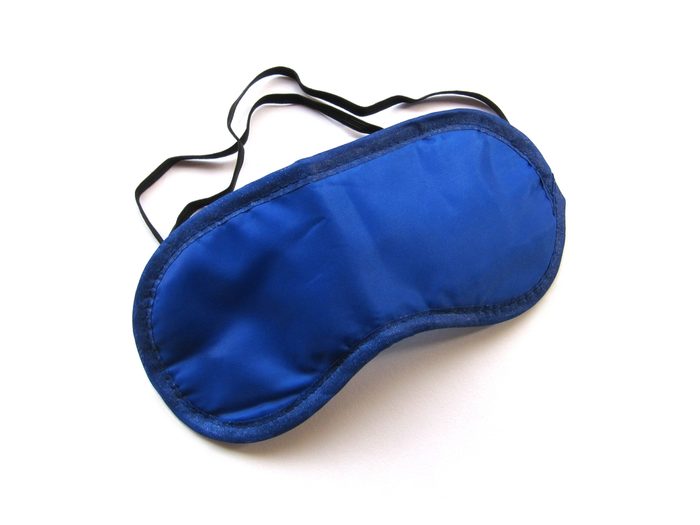
You sleep too little
Sleep loss can increase insulin resistance, resulting in high blood sugar levels; it can also mess with hormone levels that impact your metabolism. Cortisol levels rise, which is associated with fat storage, explains Shames, and growth hormone—which makes lean muscle tissue—decreases. For your body to do its job, and do it well, it needs seven to nine hours of sleep a night. Try these tips to sleep better naturally.
